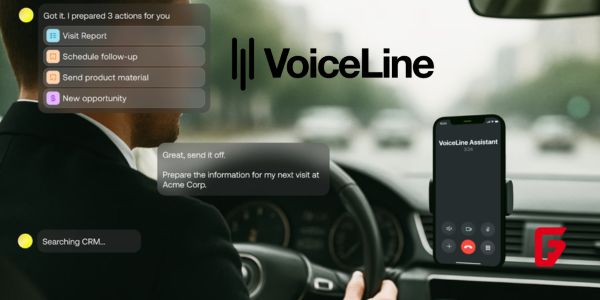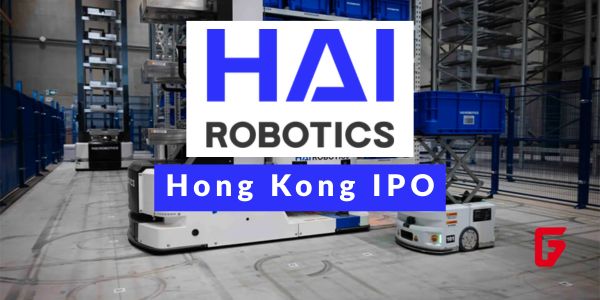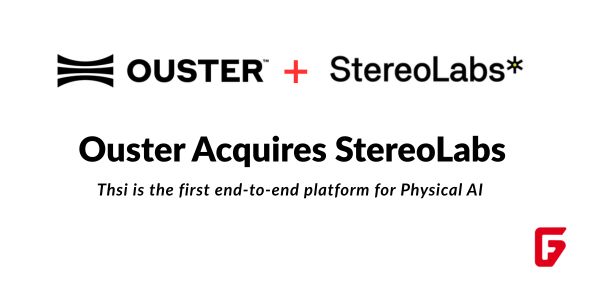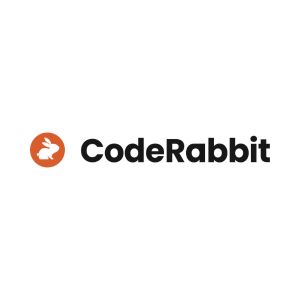Startups & Business News

Lyft and BENTELER Mobility are set to revolutionize urban transportation with the introduction of next-generation autonomous shuttles across the Lyft network, planned to start in late 2026. This strategic partnership aims to expand Lyft’s autonomous vehicle footprint, connecting over 44 million annual riders with convenient, electric, and driverless shuttle services.
“BENTELER Mobility is exactly the kind of partner we need to accelerate our AV ambitions – They’re not just a tech company — they’re closely linked to a massive automotive supplier with deep manufacturing expertise and global reach.” –Jeremy Bird, Lyft’s Executive Vice President of Driver Experience
Transforming Urban Mobility with Autonomous Shuttles
Lyft will deploy Holon GmbH’s autonomous shuttles, developed by Benteler Mobility, at a new $100 million production facility in Jacksonville, Florida. These electric shuttles are designed without traditional controls like steering wheels or pedals and feature a distinctive rectangular shape. They can accommodate up to 15 passengers—typically up to nine seated and six standing—making them ideal for short urban trips and airport circulator routes. Equipped with Mobileye autonomous technology, these vehicles promise a safe, scalable, and seamless ride experience directly bookable through Lyft’s platform.
A Partnership Rooted in Automotive Expertise
Benteler Mobility brings nearly 150 years of automotive industry experience as part of the larger Benteler Group, a multinational leader in automotive and steel manufacturing. Unlike many tech-only autonomous vehicle ventures, Benteler combines deep manufacturing expertise, fleet ownership, and financing capabilities, positioning this partnership to rapidly scale its autonomous fleet while managing the entire vehicle lifecycle from production to operation.
Expanding Autonomous Services Across U.S. Cities
Initial deployments will focus on partnerships with airports and city transit authorities, tapping into well-trafficked urban environments where autonomous shuttles can provide significant value. The shuttle service is expected to complement Lyft’s existing hybrid rideshare model, where autonomous vehicles and human drivers coexist to meet fluctuating rider demand efficiently.
Beyond Jacksonville, Lyft plans to expand shuttle deployment across more cities in the U.S. and potentially globally, with the goal of operating thousands of these autonomous shuttles in the future. The partnership also builds on Lyft’s prior autonomous efforts, including robotaxi deployments in Atlanta with May Mobility and upcoming Mobileye-powered vehicles in Dallas.
Cutting-Edge Technology Meets User-Centric Operations
The Holon shuttles are outfitted with a robust sensor suite including lidar, radar, and 11 cameras, allowing Level 4 autonomous operation—capable of self-driving without human oversight under specific conditions. This autonomous technology is integrated with Mobileye’s proven drive system, reinforcing Lyft’s commitment to safe, reliable, and cutting-edge autonomous transit.
Importantly, riders will be able to book these shuttles seamlessly through the Lyft app, enhancing accessibility and streamlining transit options across urban and airport settings.
Shaping the Future of Ride-Hailing Networks
Lyft’s collaboration with Benteler Mobility signals a strategic step towards advancing a human-centered autonomous vehicle (AV) ecosystem. By blending robust manufacturing and financing with advanced AV technology and user-first service design, Lyft aims to accelerate the adoption of autonomous mobility at scale while maintaining flexibility to integrate human drivers when needed.
This partnership enhances Lyft’s competitive positioning alongside rivals like Uber, which has similarly expanded its AV collaborations. Ultimately, Lyft envisions a transformational rideshare network where autonomous shuttles complement traditional vehicles to create a more efficient, sustainable, and user-friendly transportation future.
This autonomous shuttle initiative represents more than just a technological upgrade—it’s a forward-looking mobility solution designed to meet evolving urban transit demands with innovation rooted in real-world practicality and safety. As autonomous technology matures and scales, Lyft and Benteler Mobility’s alliance is poised to lead the charge in redefining how millions navigate cities each day.

futureTEKnow
Editorial Team
futureTEKnow is a leading source for Technology, Startups, and Business News, spotlighting the most innovative companies and breakthrough trends in emerging tech sectors like Artificial Intelligence (AI), Robotics, and the Space Industry.
Discover the companies and startups shaping tomorrow — explore the future of technology today.
Most Popular
Trending Companies
Latest Articles

Dwelly Raises $93M to Supercharge AI-Powered UK Rentals Roll-Up
London startup Dwelly just landed $93M to snap up UK rental agencies and inject AI smarts. Founders from Uber and

Encord Raises $60M Series C: Fueling Physical AI Data Wave
Encord just landed $60M in Series C funding to supercharge data tools for physical AI. Founders Eric Landau and Ulrik

Foodforecast Raises €8M Series A to Slash Ultra-Fresh Food Waste with AI
Foodforecast, a Cologne AI foodtech firm, just scored €8M in Series A funding led by SHIFT Invest. Their tools predict

AI-Driven Operational Excellence: How Leaders Scale Ownership, Discipline, and Continuous Improvement in 2026
In 2026, AI scales operational excellence fundamentals—clear ownership, disciplined execution, and continuous improvement—letting leaders focus on outcomes while systems handle

VoiceLine raises €10M to scale voice AI for enterprise frontline teams
Munich-based VoiceLine has closed a €10M Series A round to grow its voice AI platform for frontline sales and service

AI-Driven Logistics & Distribution Transformation: From Insight to Scalable Impact
AI is redefining logistics transformation—from network design to real-time execution. This article explores how data-driven insight, intelligent automation, and scalable

Hai Robotics Hong Kong IPO: From Startup Funding to Warehouse Robot Leader
Shenzhen’s Hai Robotics, pioneer in ACR warehouse robots, files for HK IPO after raising over $500M in funding rounds led

AI-Enabled Process Engineering & Continuous Improvement: Designing Systems That Learn
Explore how AI transforms process engineering and continuous improvement into self-learning systems. This article explains how organizations can design operations

Ouster Acquires StereoLabs: Unified Physical AI Sensing Platform Launches
Ouster’s $35M StereoLabs acquisition fuses lidar and ZED cameras into end-to-end Physical AI sensing. Founders Cecile Schmollgruber and team drive

Bretton AI Lands $75M Series B Funding to Scale AI Agents for Financial Crime and AML/KYC Compliance
Bretton AI’s $75M Series B modernizes AML KYC compliance via AI agents, slashing staffing costs for banks and fintechs like

Axiom Space Raises $350M to Build Commercial Space Station and NASA Spacesuits
Axiom Space has locked in a fresh $350M raise to push its commercial space station and NASA lunar spacesuits toward

Santé Raises $7.6M Seed: AI Fintech Revolution for Wine and Liquor Retail
New York startup Santé secures $7.6M seed to build AI-powered POS for liquor stores, tackling regs & inventory woes after
futureTEKnow is focused on identifying and promoting creators, disruptors and innovators, and serving as a vital resource for those interested in the latest advancements in technology.
© 2026 All Rights Reserved.





